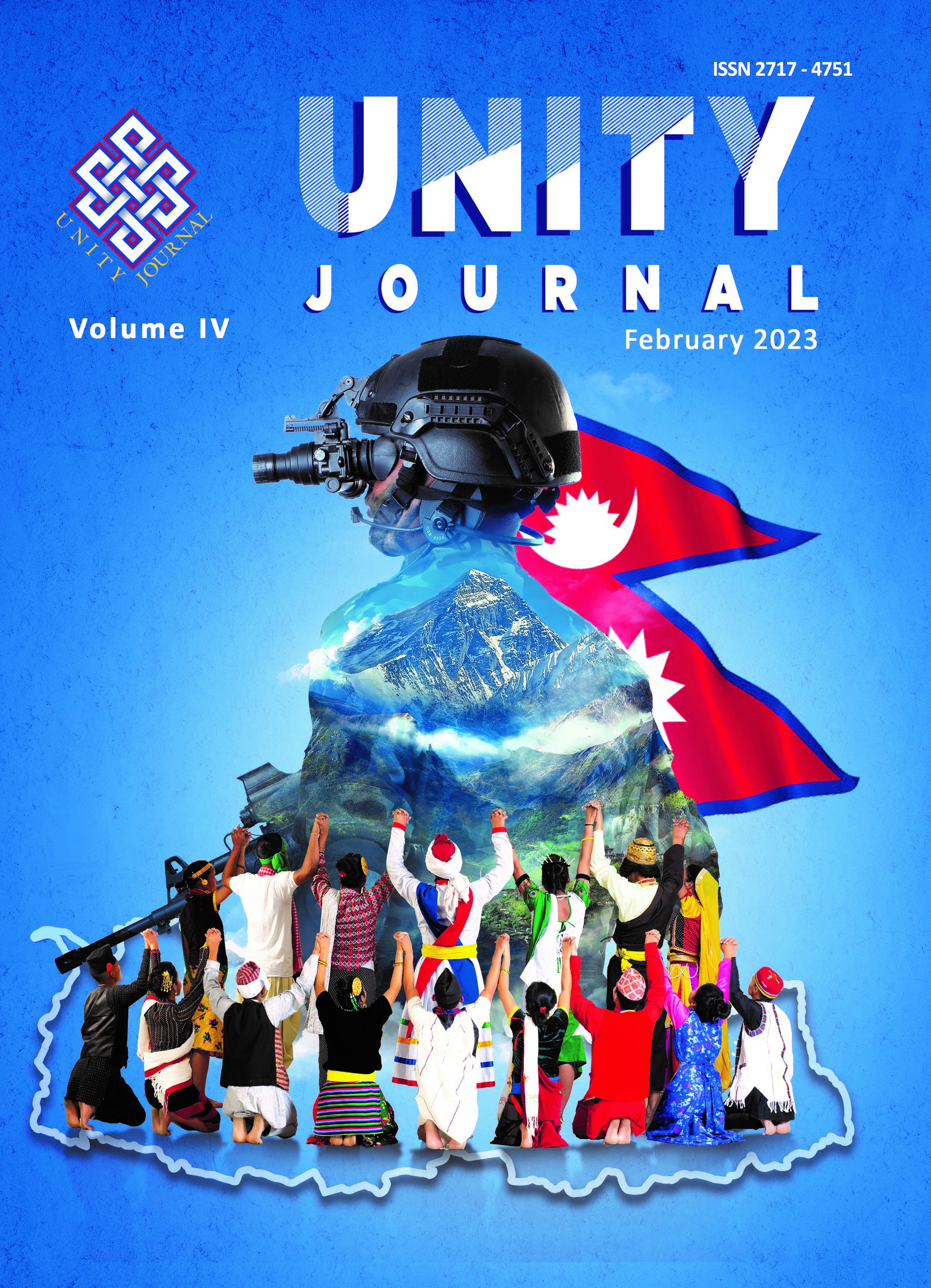Geo-psychology of Nepal as a ‘Small State’
DOI:
https://doi.org/10.3126/unityj.v4i01.52230Keywords:
positioning, experiences, intersubjectivity, Nepal, small states, geopsychologyAbstract
What is ‘small’ in the small states? What is the geo-psychology of Nepal as a small state? Scholars have not been able to conclude what is ‘small’ in small states. The economy, population, territory, and military elements have been regarded as criteria responsible for the smallness of the small states. The study has investigated the psychological ‘self’ and ‘forced’ positioning as a small state. Further, the study argues that the smallness in Nepal is the psychological construction determined by the geographical positioning of the country as well as through social phenomena of interaction (cognitive process) and experiential form. The study forwards the argument that Nepal as a small state is the outcome of the geopolitical reasoning and geopolitical imagination of the ‘other’. The smallness of Nepal is intersubjective, a psychological construct, which was shaped through shared experience, particularly in relation to the neighbours. The study contests the traditional idea of quantitative analysis of smallness in a state, unfolding the collective national psyche of small states which are mainly impacted by geography and intersubjective interactions. Furthermore, the study’s conceptual framework is based on the idea of ‘geopsychology’, which takes ‘geography’ as a determining factor of state psychology. The qualitative study examines the origin of smallness in Nepal using secondary data sources from academic journals, books, reports, and online platforms.
Downloads
Downloads
Published
How to Cite
Issue
Section
License
The articles rest within the authority of the Nepali Army. Only with the Nepali Army's prior permission, can any article in whole or in part from this journal shall be reproduced in any form.

